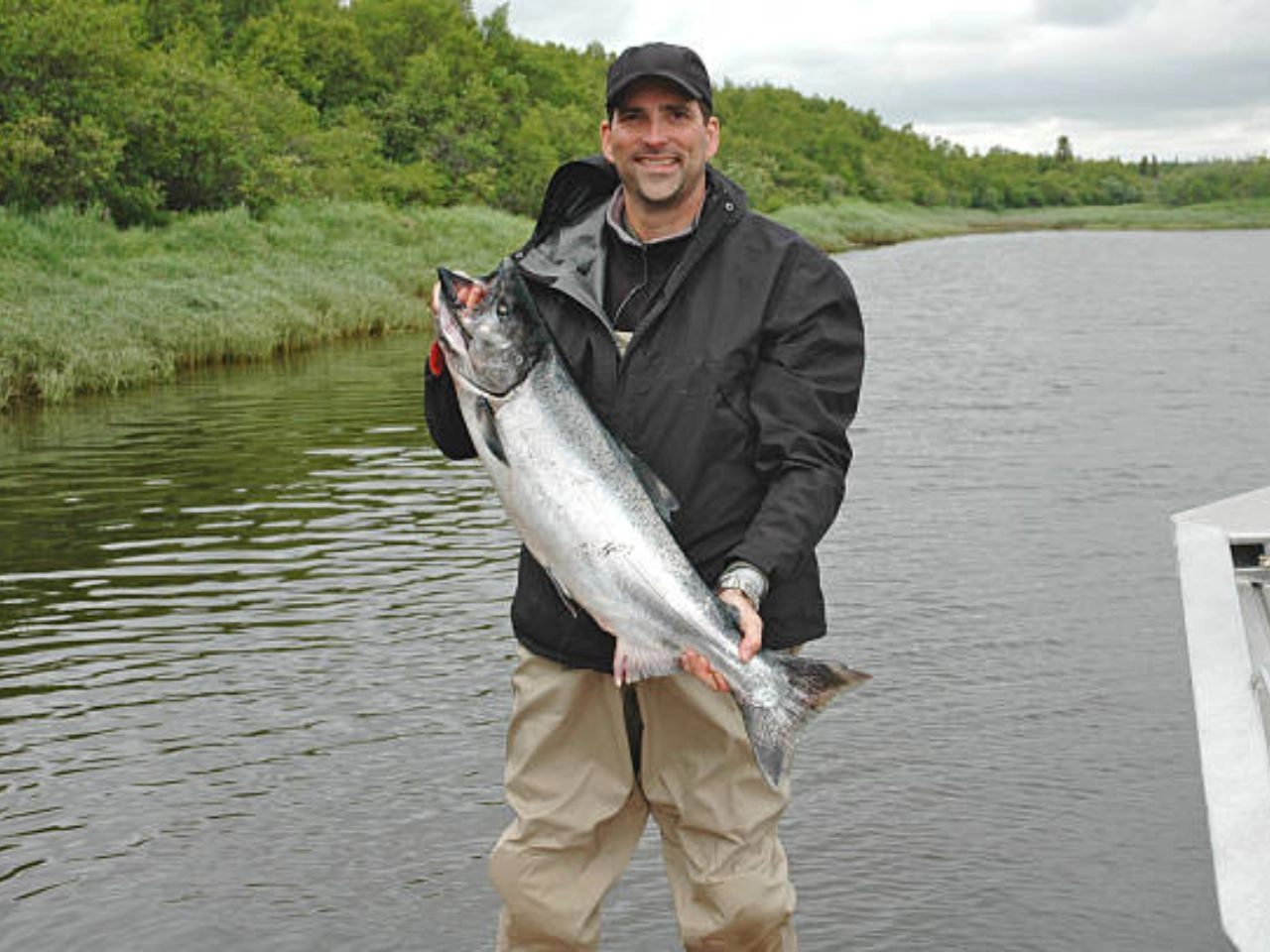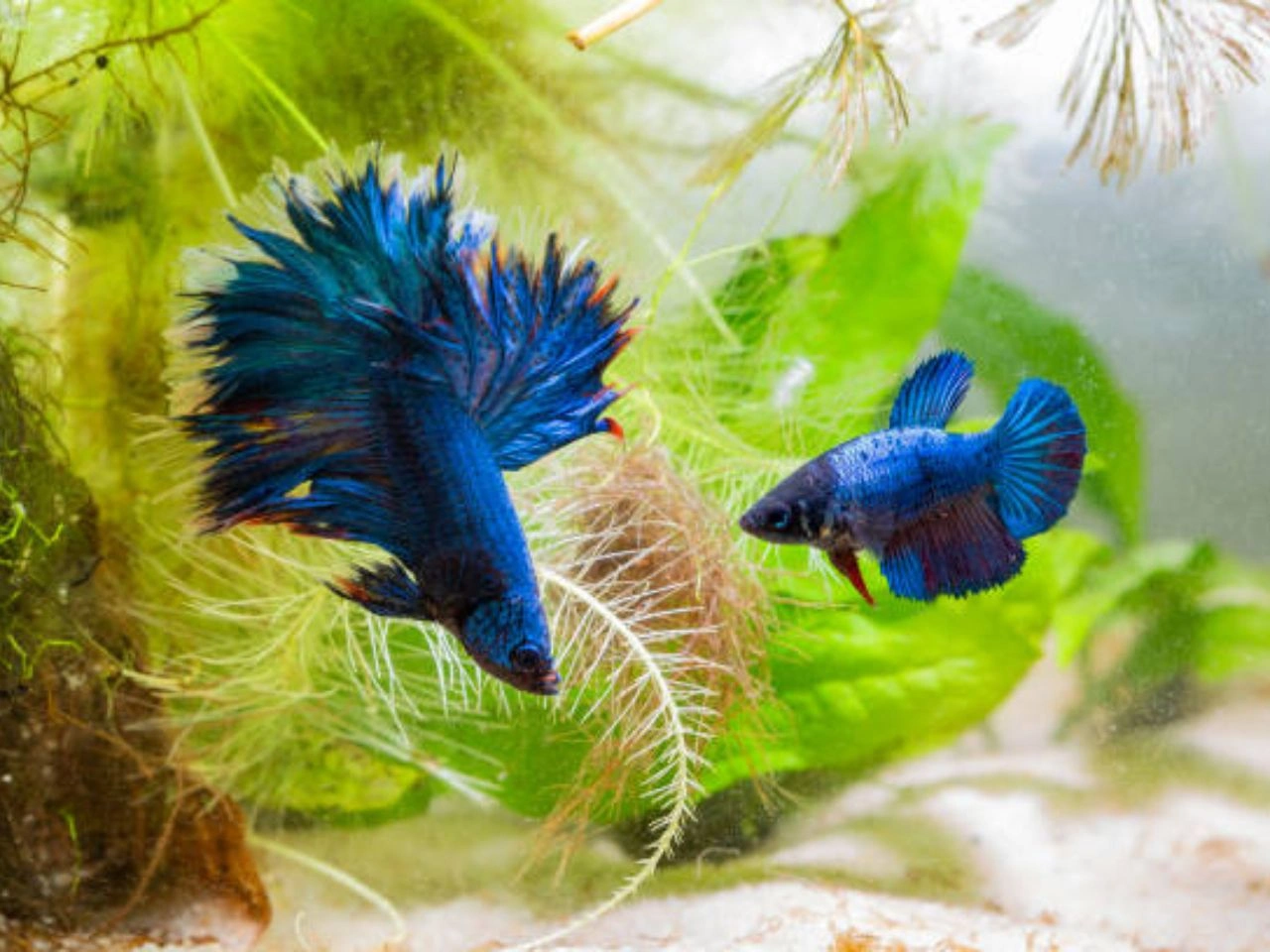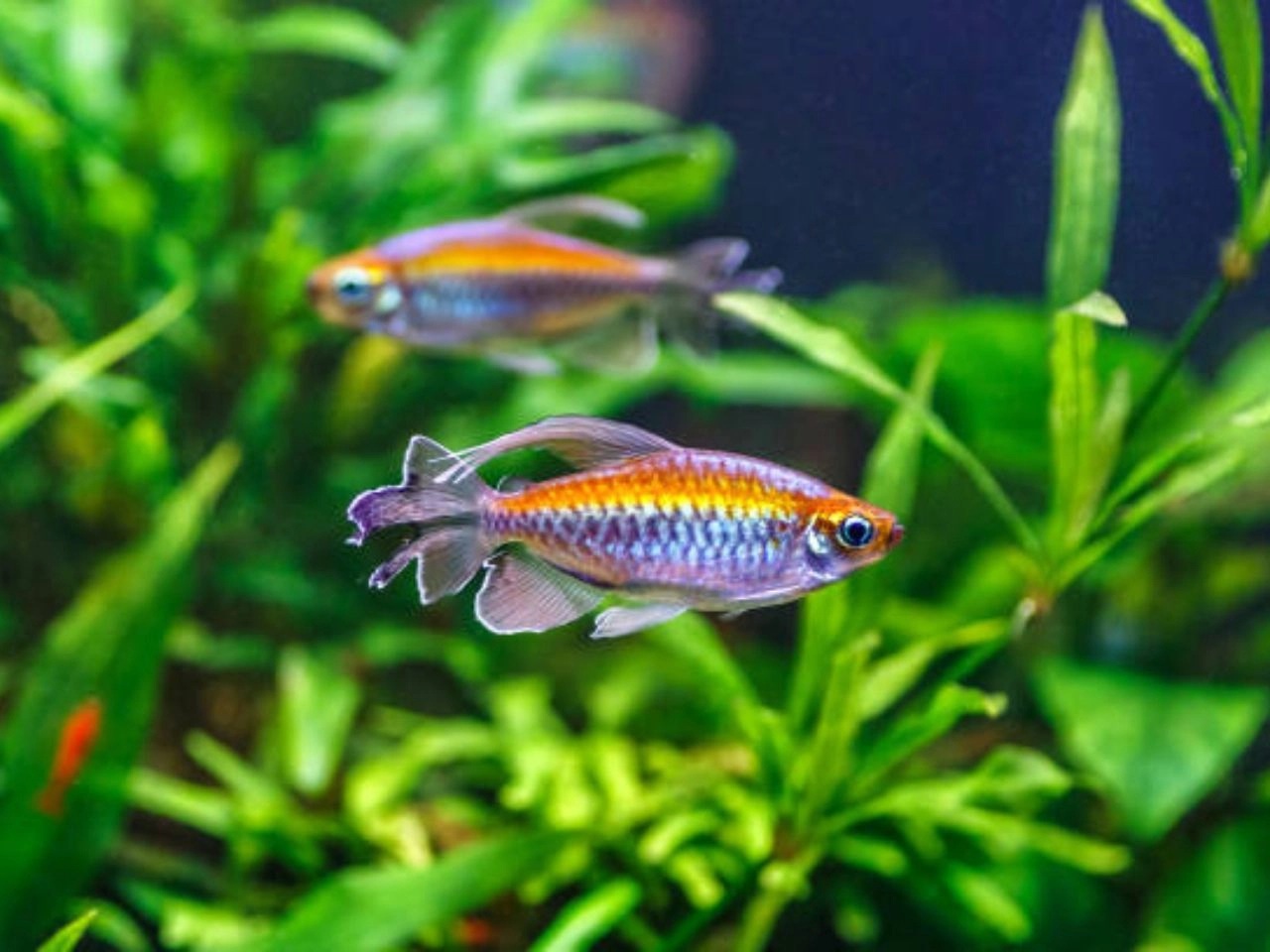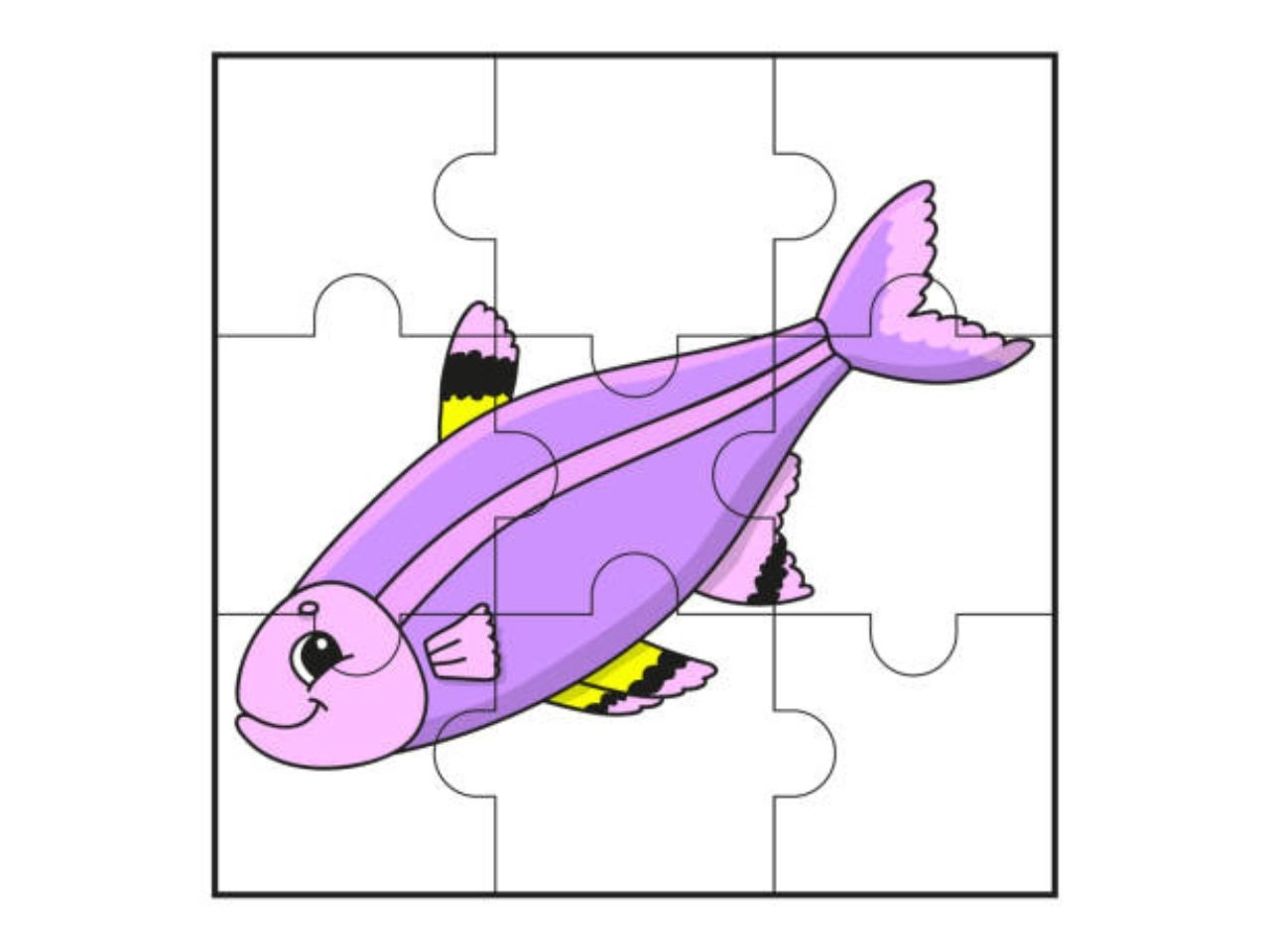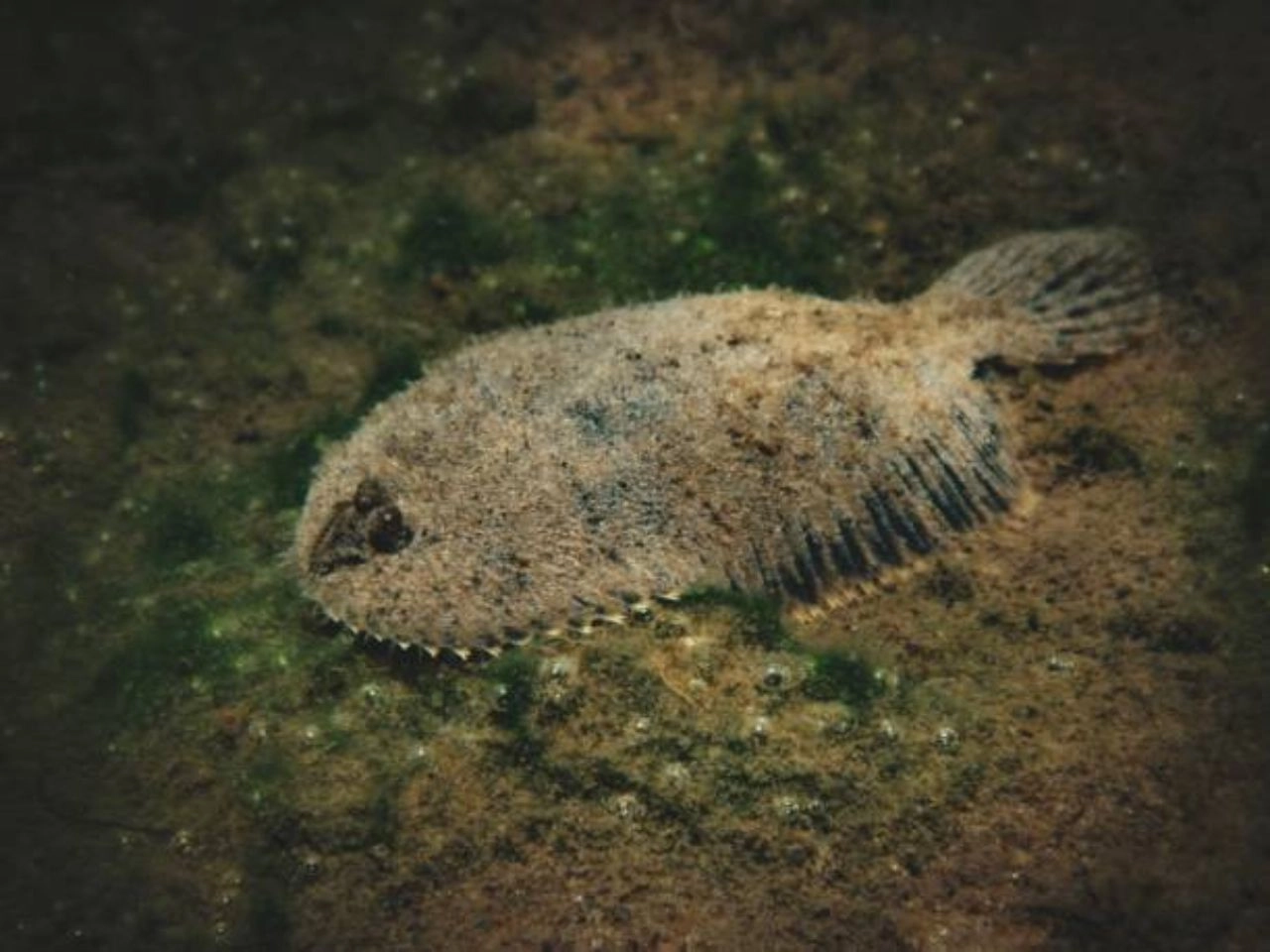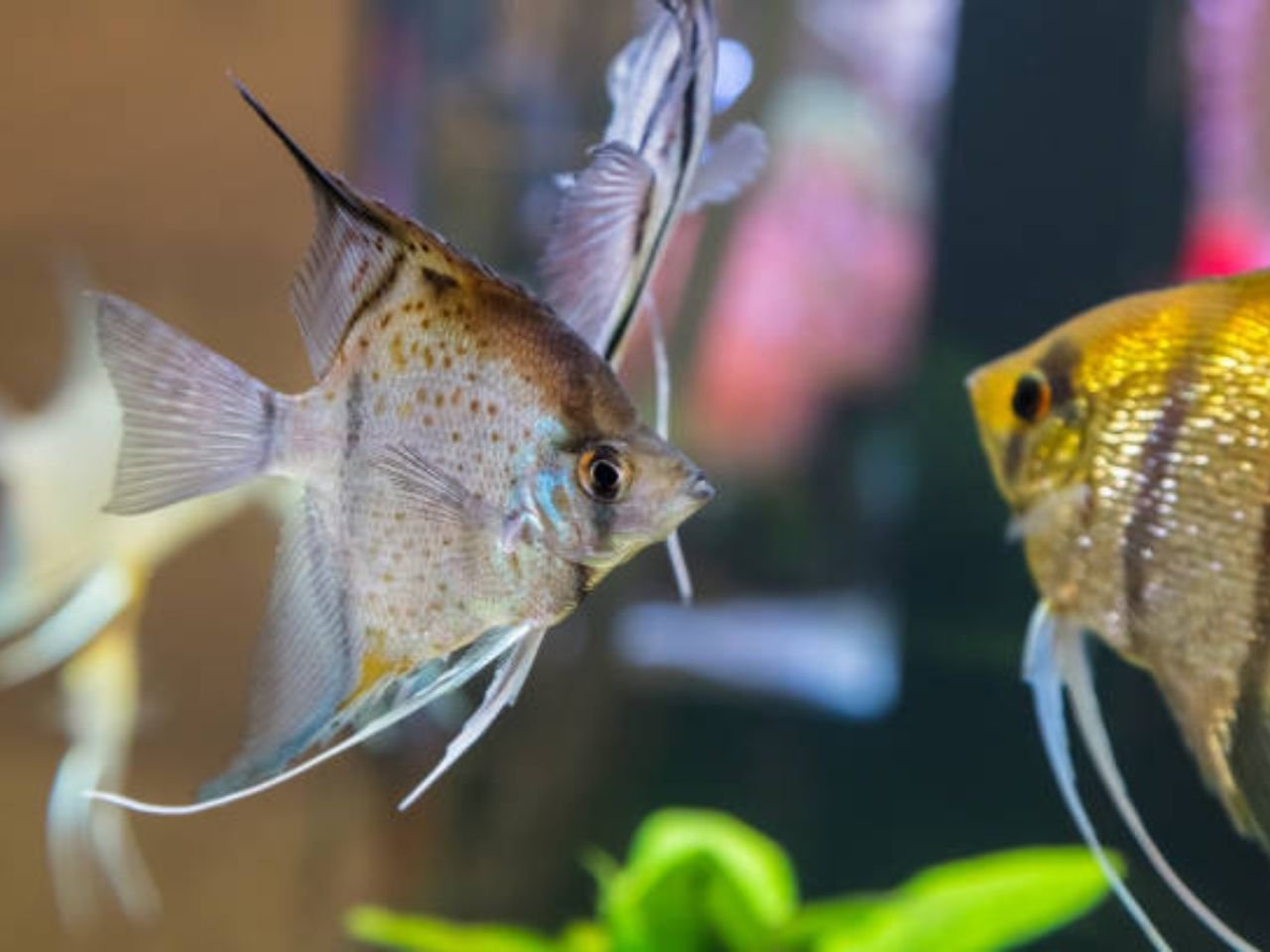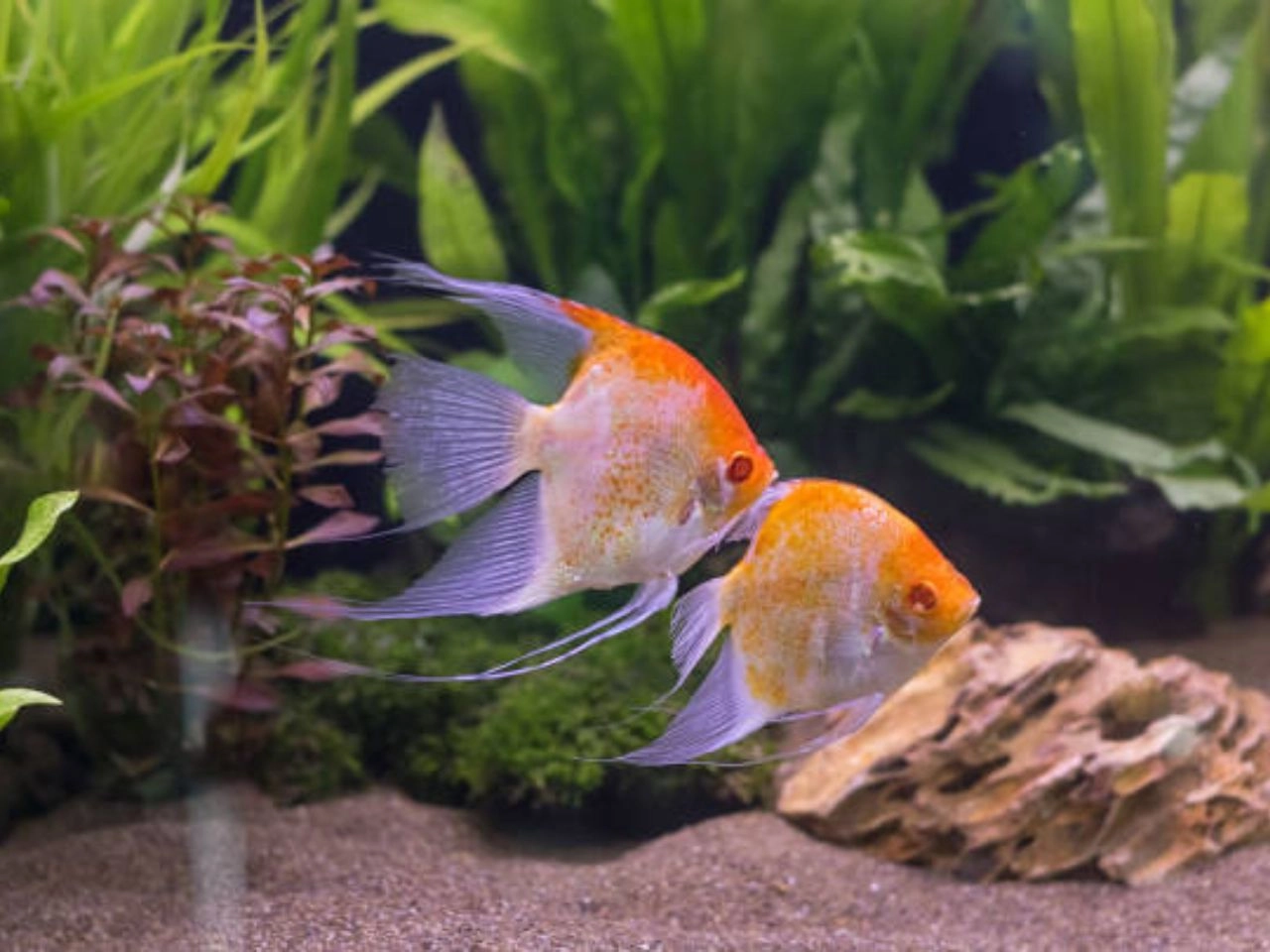The Regal Angelfish is a vibrant marine fish known for its striking colors. It inhabits coral reefs in the Indo-Pacific region.
The Regal Angelfish, scientifically named Pygoplites diacanthus, is a popular species among marine aquarium enthusiasts. Its vivid blue, yellow, and orange hues make it a visually stunning addition to any tank. This fish prefers a well-established reef environment with plenty of hiding spots.
It can be challenging to keep due to its specific dietary and habitat needs. Regal Angelfish thrives in stable water conditions with ample live rock and coral. They usually grow up to 10 inches in length. Their diet includes sponges, tunicates, and other marine invertebrates. Proper care ensures the Regal Angelfish remains healthy and vibrant.
Regal Angelfish Care
The Regal Angelfish, also known as Pygoplites diacanthus, is a stunning marine fish. It captivates with vibrant colors and unique patterns. This fish is a favorite among aquarium enthusiasts.
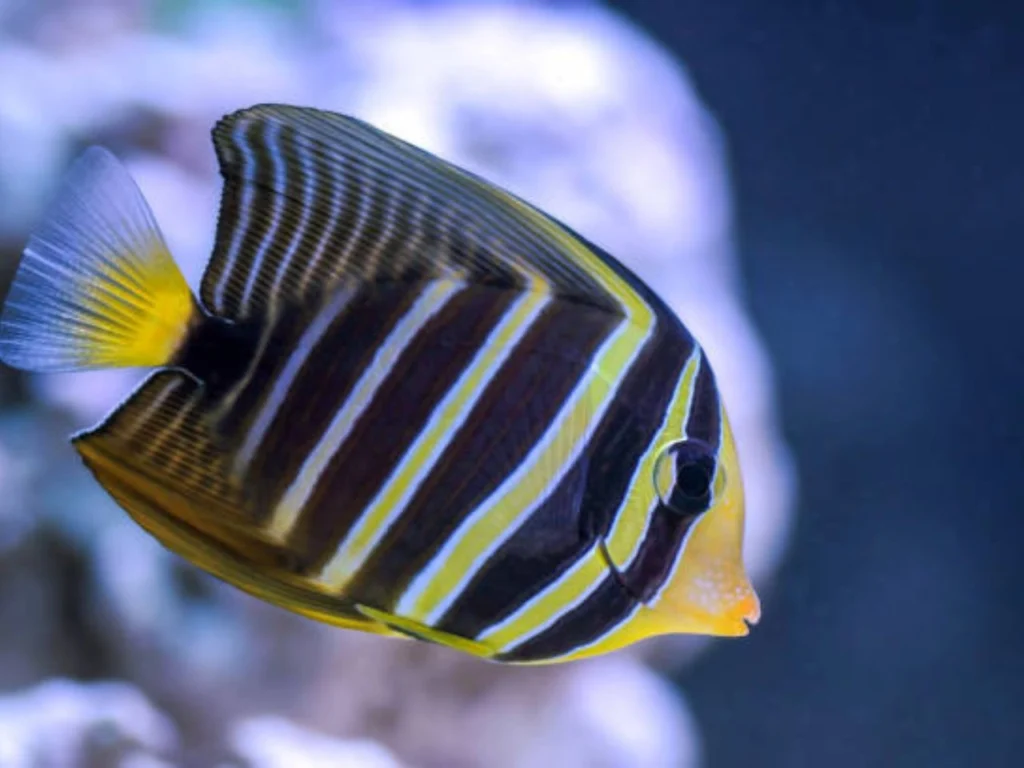
Native Habitat
The Regal Angelfish thrives in the Indo-Pacific region. This area includes the Red Sea, Indian Ocean, and central Pacific Ocean. They inhabit coral reefs and lagoons. These fish prefer warm, tropical waters.
| Region | Details |
|---|---|
| Red Sea | Known for clear waters and rich marine life. |
| Indian Ocean | Home to diverse coral reefs. |
| Central Pacific Ocean | Includes areas like Fiji and Samoa. |
Distinctive Features
The Regal Angelfish is famous for its striking appearance. Its body boasts bold, vertical stripes. These stripes are bright yellow and blue. The fish also has a unique crescent-shaped tail. Its dorsal and anal fins are elongated and colorful.
- Color: Yellow, blue, and white stripes.
- Tail: Crescent-shaped, often blue or yellow.
- Fins: Elongated dorsal and anal fins.
This fish can grow up to 10 inches long. Its beauty and elegance make it a prized addition to any aquarium.
Aquarium Setup Essentials
Setting up an aquarium for Regal Angelfish requires careful planning. This guide will help you create a perfect home for your fish. Follow these essentials to ensure a healthy environment.
Tank Size Recommendations
Regal Angelfish needs plenty of space. A larger tank helps them thrive.
- Minimum tank size: 100 gallons
- Ideal tank size: 125 gallons or more
- Ensure enough swimming space
A larger tank also helps maintain stable water conditions. This is crucial for their health.
Water Parameters
Proper water conditions are vital. Regal Angelfish need specific parameters to stay healthy.
| Parameter | Ideal Range |
|---|---|
| Temperature | 72-78°F (22-26°C) |
| pH Level | 8.1-8.4 |
| Salinity | 1.020-1.025 SG |
| Ammonia | 0 ppm |
| Nitrite | 0 ppm |
| Nitrate | < 20 ppm |
Use a reliable test kit. Make adjustments as needed.
Ensure a good filtration system. This keeps the water clean and healthy.
Creating A Reef-safe Environment
Creating a safe environment for your Regal Angelfish is vital. This fish thrives in reef tanks with specific conditions. Let’s explore how to make your tank a safe haven.
Compatible Corals
Regal Angelfish are reef-safe but can nibble on some corals. Choose corals wisely to avoid problems.
- Soft Corals: Xenia, Kenya Tree, and Mushroom corals are good choices.
- LPS Corals: Hammer, Frogspawn, and Torch corals work well.
- SPS Corals: Montipora and Acropora are generally safe.
Avoiding Toxic Setups
Avoid placing toxic elements in your reef tank. This helps the Regal Angelfish stay healthy.
- Avoid Copper: Copper is toxic to angelfish. Use copper-free treatments.
- Test Water Regularly: Check ammonia, nitrate, and nitrite levels often.
- Provide Hiding Spots: Use live rock to create caves and crevices.
| Element | Reason to Avoid |
|---|---|
| Copper | Toxic to Regal Angelfish |
| High Ammonia | Causes stress and disease |
| Lack of Hiding Spots | Increases stress and aggression |
Diet And Nutrition
The Regal Angelfish, known for its stunning colors, requires a specific diet. Proper nutrition is essential to maintain its health and vibrant appearance. Understanding their dietary needs is crucial for any aquarium enthusiast.
Feeding Habits
Regal Angelfish are omnivores, which means they eat both plants and animals. In their natural habitat, they feed on sponges, tunicates, and algae. They also consume small invertebrates.
In captivity, a varied diet is crucial. Offer them a mix of:
- Frozen or live brine shrimp
- Mysis shrimp
- Algae sheets
- Marine angelfish preparations
Feeding them two to three times a day is ideal. Ensure the food is small enough to eat easily. This prevents waste and keeps the tank clean.
Nutritional Supplements
Nutritional supplements can boost their diet. These supplements ensure they get all the necessary vitamins and minerals.
| Supplement | Benefits |
|---|---|
| Vitamins | Boosts immune system |
| Minerals | Supports overall health |
| Spirulina | Enhances color |
A balanced diet ensures your Regal Angelfish thrives. This helps them live a long, healthy life in your aquarium.
Health And Wellness
Regal Angelfish is beautiful and vibrant. They need special care to stay healthy. Understanding their health and wellness helps them live a long life.
Common Diseases
Regal Angelfish can suffer from various diseases. Knowing these diseases helps in early detection and treatment.
- Marine Ich (White Spot Disease): This is a parasitic infection. Fish show white spots on their body.
- Velvet Disease: This is caused by tiny parasites. Fish have a dusty appearance.
- Bacterial Infections: These cause ulcers and fin rot. Proper water quality helps prevent these.
Stress Prevention
Stress affects the health of Regal Angelfish. Reducing stress keeps them happy and healthy.
- Stable Water Conditions: Keep water parameters steady. Sudden changes stress the fish.
- Proper Tank Size: Provide enough space. Crowded tanks cause stress.
- Good Diet: Feed a varied diet. Include vegetables and protein.
- Hideouts: Provide hiding spots. Fish feel safe and less stressed.
Behavioral Traits
The Regal Angelfish is a fascinating marine species. Understanding its behavior helps in maintaining a healthy aquarium environment. This section explores the unique behavioral traits of the Regal Angelfish.
Social Dynamics
Regal Angelfish is often solitary. They prefer to live alone in the wild. In an aquarium, they might interact with other fish. But they can show territorial behavior. They defend their space aggressively. Male Regal Angelfish are more territorial than females. It’s best to keep only one male per tank.
These fish form pairs during breeding. They display courtship behaviors. This includes swimming in circles and flashing their bright colors. These displays attract potential mates.
Activity Patterns
Regal Angelfish are diurnal. They are active during the day. At night, they rest in hidden spots. They prefer areas with lots of hiding places. In an aquarium, provides plenty of rocks and caves.
They enjoy exploring their environment. They swim through rock crevices and coral branches. Observing them can be quite entertaining. They display curiosity and intelligence.
Here’s a summary of their activity patterns:
| Time of Day | Activity |
|---|---|
| Day | Active, exploring, feeding |
| Night | Resting, hiding |
Tank Mates For Regal Angelfish
Regal Angelfish are beautiful and peaceful marine creatures. Choosing the right tank mates is crucial for their well-being. This guide will help you select the best companions for your Regal Angelfish.
Compatible Species
Regal Angelfish thrives with other peaceful species. They get along well with the following fish:
- Clownfish
- Gobies
- Blennies
- Cardinalfish
- Reef-safe Wrasses
These fish are non-aggressive and share similar water needs.
Species To Avoid
Some fish can stress or harm your Regal Angelfish. Avoid adding these species to your tank:
- Large Triggerfish
- Lionfish
- Groupers
- Dottybacks
- Hawkfish
These fish are aggressive or territorial and may cause issues.
Breeding In Captivity
Regal Angelfish are stunning creatures. Breeding them in captivity is a rewarding challenge. Many aquarists find it tough yet fulfilling. This section will explore the key aspects of breeding these fish.
Breeding Conditions
Creating the right conditions is crucial. Here is a table outlining the necessary parameters:
| Parameter | Ideal Range |
|---|---|
| Water Temperature | 76-82°F (24-28°C) |
| pH Level | 8.1-8.4 |
| Salinity | 1.020-1.025 |
| Lighting | Low to Moderate |
| Tank Size | 150 gallons minimum |
Raising Fry
Once the eggs hatch, the fry need special care. Follow these steps:
- Transfer fry to a separate tank.
- Keep the water clean and stable.
- Feed fry with rotifers and baby brine shrimp.
- Monitor growth daily.
- Gradually introduce them to adult food.
Fry are delicate. Regular monitoring ensures their survival. Small frequent feedings help them grow strong. Keep predators away from the fry tank.
Maintenance And Care Routines
Keeping Regal Angelfish healthy requires diligent maintenance and care routines. These routines ensure your fish thrive and display their vibrant colors. This section will guide you through essential cleaning practices and water changes.
Cleaning Practices
Regular cleaning practices are crucial for your Regal Angelfish. Clean the tank walls weekly to remove algae buildup. Use a soft sponge to avoid scratching the glass. Clean decorations and rocks monthly. Soak them in a mild bleach solution, then rinse thoroughly.
Maintain the filter by cleaning it bi-weekly. Remove debris and replace filter media as needed. Ensure water flow remains strong. Check the substrate every month. Vacuum the gravel to remove waste and uneaten food.
Water Changes
Water changes are vital for Regal Angelfish’s health. Change 20-30% of the tank water weekly. Use a siphon to remove water from the bottom of the tank. This helps eliminate waste and toxins.
Prepare new water before adding it to the tank. Ensure the temperature matches the tank water. Use a dechlorinator to remove harmful chemicals from tap water. Slowly add the new water to avoid stressing your fish.
Regular maintenance and care routines keep your Regal Angelfish happy and healthy.
Common Mistakes To Avoid
Regal Angelfish are beautiful and captivating creatures. Yet, they need proper care. Many aquarists make mistakes. These errors can harm the fish. Let’s look at common mistakes and how to avoid them.
Overfeeding Issues
Overfeeding is a common mistake. It leads to many problems.
- Excess food decays and pollutes the water.
- Polluted water harms the fish’s health.
- Regal Angelfish can become overweight.
Feed them small amounts. Twice a day is enough. Use high-quality food. Variety in diet is important. Include:
- Algae
- Sponges
- Brine shrimp
Inadequate Filtration
Good filtration is vital. Many aquarists neglect this.
- Dirty water stresses the fish.
- Stress weakens the immune system.
- Weakfish get sick easily.
Ensure a strong filtration system. Check the filter regularly. Clean or replace it as needed.
Here is a simple table for filtration maintenance:
| Task | Frequency |
|---|---|
| Check filter | Weekly |
| Clean filter | Monthly |
| Replace filter parts | Every 3 months |
Advanced Tips For Expert Aquarists
Regal Angelfish are a stunning addition to any marine aquarium. They require extra care and attention. These advanced tips will help expert aquarists maintain healthy Regal Angelfish. Follow these guidelines to keep your fish thriving.
Acclimation Techniques
Proper acclimation is crucial for Regal Angelfish. Use the drip method for best results. Fill a bucket with water from the fish store. Use an air tube to slowly add tank water to the bucket.
- Set up a siphon with the air tube.
- Start the drip with one drop per second.
- Increase to two drops per second after 30 minutes.
- After 1-2 hours, the bucket should have mostly tank water.
- Gently transfer the Regal Angelfish to the aquarium.
This slow process helps reduce stress. It allows the fish to adjust to new water conditions.
Long-term Health Monitoring
Regular health checks are vital for Regal Angelfish. Monitor their behavior and appearance daily. Look for signs of illness or stress.
- Check for changes in color or spots.
- Observe swimming patterns and feeding habits.
- Test water quality weekly.
- Maintain stable temperature and salinity.
- Ensure a varied diet with high-quality foods.
Use a table to track health data. This helps identify problems early.
| Date | Water Parameters | Fish Behavior | Feeding Notes |
|---|---|---|---|
| 01-01-2023 | pH: 8.2, Temp: 78°F | Active, no signs of stress | Ate well, variety of foods |
| 01-08-2023 | pH: 8.1, Temp: 77°F | Normal, no color changes | Ate well, added new food |
FAQ(Regal Angelfish Care)
Why Are Regal Angelfish Hard To Keep?
Regal Angelfish are hard to keep due to their strict dietary needs, sensitive nature, and specific water conditions. They require expert care and a stress-free environment to thrive.
What Size Tank Does A Regal Angelfish Need?
A Regal Angelfish needs a tank of at least 100 gallons. This size ensures enough swimming space and reduces stress.
What Corals Do Regal Angels Eat?
Regal Angels eat soft corals, small polyp stony corals, and various types of algae. They prefer zoanthids and gorgonians.
What Are Some Interesting Facts About The Regal Angelfish?
The Regal Angelfish boasts vibrant blue, yellow, and orange stripes. It thrives in coral reefs and reaches up to 10 inches. This fish is known for its shy nature and unique coloration patterns. Regal Angelfish are popular in marine aquariums but require expert care.
Caring for Regal Angelfish can be rewarding for aquarium enthusiasts. Their vibrant colors and unique patterns add beauty to any tank. Ensure proper water conditions and diet for their health. With the right care, these fish can thrive and become a stunning centerpiece in your aquarium.
Enjoy the elegance of Regal Angelfish!
